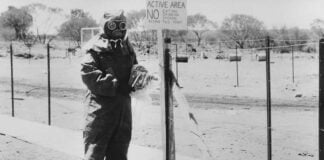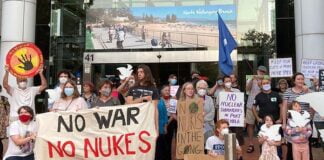The war in Afghanistan is rapidly spreading into Pakistan to create what is becoming known as the Af-Pak war. The US has undertaken about 48 drone air strikes in Pakistan since the beginning of 2008, killing about 465 people. The attacks are focused along the border areas with Afghanistan.
The offensive initiated by the Bush administration, has continued under Barack Obama in what The Times in London called “a clear sign that the controversial military policy begun by George W Bush has not changed”.
The US is frustrated over what it sees as Pakistan’s failure to stem the flow of Taliban and al-Qaeda fighters from the tribal border regions into Afghanistan.
But its belligerent stand is further destabilising Pakistan, a nuclear power which is already teetering on the brink of meltdown.
Pakistan is a vital part of projecting US power in the region. It has received more than $US10 billion of American aid since 2001 and bought more than $US5 billion of US weaponry in 2006 alone.
There is clear evidence that Pakistan is working with the US military. US Senator Dianne Feinstein told a US Senate hearing in February that drones were being flown from a Pakistani base. Residents in an area hit by a missile in early July reported that two Pakistani military aircraft flew over shortly afterwards.
But the Pakistan government denies that it has a deal with the US and occasionally condemns the missile strikes.
This contradiction is because there is massive opposition to the US within Pakistan. More than 70 per cent of Pakistanis fear their country becoming a victim of US aggression.
This anti-US mood is fuelled by Washington’s support for successive corrupt Pakistani regimes.
So the Pakistan ruling class—and, in particular, the military—is torn. Many in the military are sympathetic to the Islamists, but have had to launch major assaults on them, first in the Swat Valley, now in South Waziristan, to placate the US. The Pakistan army created two million refugees in Swat.
Pakistan is key to Obama’s strategy in Afghanistan. But in both countries, opposition to the war is growing.
By David Glanz





